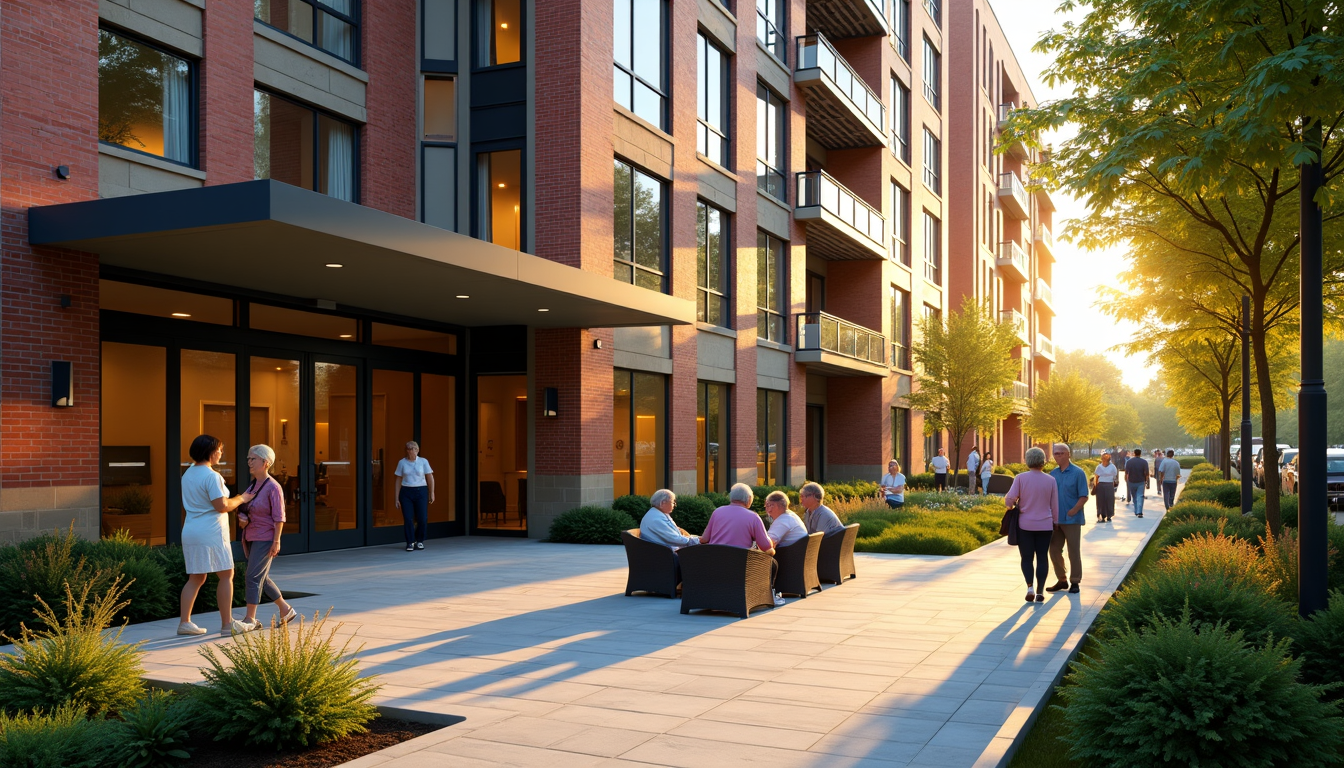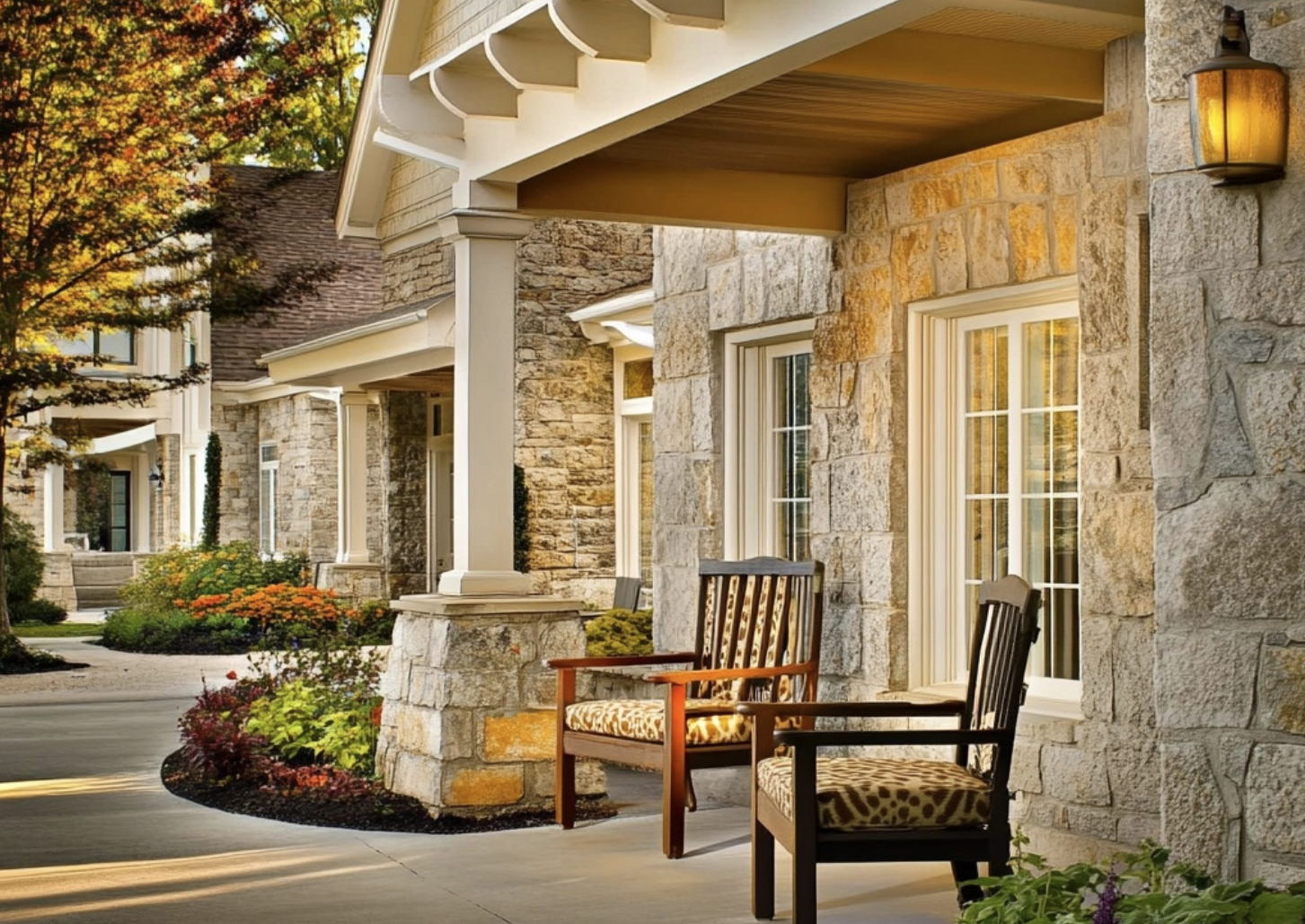More than 200,000 seniors in New York City spend over half their monthly income on rent, according to recent housing data. The statistics show one-third of elderly residents struggle with housing costs in the nation’s most expensive rental market.
The application process for low-income senior housing involves multiple steps – from meeting strict income requirements to submitting extensive documentation and navigating lengthy waiting lists. Many seniors find themselves overwhelmed by the complex requirements and paperwork needed to secure affordable housing.
This guide outlines the essential steps for low-income senior housing in NYC applications. The information covers qualification criteria, required documentation, and strategies to strengthen applications. Detailed sections break down each phase of the process, from initial eligibility checks through final approval.
NYC Senior Housing Programs Overview
NYC projects a 40% surge in residents aged 65 and older between 2010 and 2040, requiring housing solutions for 400,000 additional seniors. The New York City Housing Authority (NYCHA) currently maintains 7,700 units specifically for older adults.
Available Low-Income Housing Options
Five major programs serve NYC’s senior population:
- Senior Affordable Rental Apartments (SARA) reserves 30% of units for homeless seniors through low-interest construction loans
- Section 202 Supportive Housing limits resident rent to 30% of income
- Mitchell-Lama Housing targets moderate-income families
- NYCHA Public Housing houses seniors in 38% of total units
- Enriched Housing Program combines housing with support services
Housing Management Organizations
The Housing Preservation and Development (HPD), New York City Housing Authority (NYCHA), and New York Foundation for Senior Citizens (NYFSC) oversee these programs. Each organization manages specific aspects of senior housing development and maintenance.
2023 Income Requirements and Eligibility
Income limits vary across programs:
| Income Category | Percentage of AMI | Annual Income Range |
|---|---|---|
| Extremely Low | 0-30% | Up to $23,000 |
| Very Low | 31-50% | Up to $38,500 |
| Low | 51-80% | Up to $61,600 |
| Moderate | 81-120% | Up to $77,000 |
The HUD 202 program reports 200,000 seniors on waiting lists, with typical wait times spanning 7-10 years. Most programs require applicants to be 62 or older, with specific household requirements:
- Single residents: Head of household must be 62+
- Multiple residents: Head or co-head must be 62+, all permanent members 62+
More than half of senior renters face rent burden, spending excessive portions of income on housing. This situation underscores the critical need for affordable housing access among NYC’s aging population.
Required Documents for Senior Housing Applications
Senior housing applications require specific documentation for eligibility verification. The New York City Housing Authority (NYCHA) reviews these documents during the eligibility interview phase of senior housing application processing.
Personal Documentation Requirements
Applicants must gather these identification documents:
- Birth certificate or passport proving age
- Social Security card for each household member
- Marriage certificate (if applicable)
- Current government-issued photo ID
- Three months of address verification
- Three-year rental history with landlord contacts
Income and Financial Records
NYCHA requires 12 months of financial documentation:
Income Verification:
- Social Security/SSI award letters (60-day validity)
- Pension documentation
- Employment records (pay stubs, W-2 forms)
- Public assistance records
- Child support documentation
Asset Verification:
- Bank account statements
- Investment records
- Stock and bond certificates
- Property documents
Medical Records
Health documentation must include:
Required Health Records:
- Medical exam report (30-day validity)
- Current immunization records
- TB screening results (30-day validity)
- Chronic condition documentation
The initial NYCHA application does not require document submission. Original documents or certified copies become necessary during verification appointments. Photocopies alone do not meet verification requirements.
The NYCHA Customer Contact Center provides document assistance at (718) 707-7771, operating Monday through Friday, 8 am to 5 pm. Staff members guide applicants through specific documentation questions and requirements.
NYC Senior Housing Application Steps
NYC Housing Connect serves as the central platform for affordable housing applications. The system processes senior housing requests through a standardized online procedure.
Housing Connect Profile Creation
The online portal requires specific profile information:
- Household composition details
- Income documentation
- Employment records
- Housing preferences
- Contact details
- Asset verification
Application Submission Process
Housing Connect applications follow five key steps:
- Browse available housing listings
- Choose matching developments
- Submit before deadlines
- Monitor application status
- Await lottery results
The lottery system processes all applications randomly after deadlines. Application timing does not affect selection chances.
Document Submission Requirements
Lottery-selected applications require verification document submission within specific timeframes. Housing Connect offers two submission methods:
Digital Submission: The Housing Connect platform accepts direct document uploads for developer review.
Physical Submission: Paper applications remain acceptable through postal mail, following listing-specific guidelines.
Application processing spans two to twelve months post-deadline. Successful applicants must:
- Maintain current profile information
- Check email communications regularly
- Prepare verification documents
- Enable notification alerts
Selected applicants receive log numbers requiring quick response, typically within business days. Document verification precedes potential lease offers.
The Customer Contact Center provides application assistance Monday through Friday, 8 am to 5 pm.
Senior Housing Application Success Strategies
Housing Connect data shows specific factors determine application success rates for affordable senior housing in NYC. Application reviewers report common errors often lead to immediate disqualification.
Critical Application Errors
Housing specialists identify six major mistakes causing application delays or rejections:
- Income qualification mismatches
- Missed 10-day document submission windows
- Outdated financial documentation
- Inactive Housing Connect profiles
- Conflicting household information
- Approximate rather than exact income figures
Application Strengthening Methods
Location flexibility significantly increases approval chances, according to Housing Connect data. Applications listing multiple neighborhood preferences show 40% higher success rates.
Incomplete Housing Connect profiles fail to receive lottery numbers in 65% of cases. The system requires complete household summaries and current documentation.
Document submissions must arrive as single packages. Housing Connect’s processing system blocks multiple submission attempts during initial review periods.
Application Monitoring Protocol
Five key tracking steps ensure application visibility:
- Daily Housing Connect dashboard checks
- 10-day response window compliance
- Document copy maintenance
- Immediate profile updates
- Housing authority communication records
Rejected applications require swift appeals. Successful appeals typically include new eligibility documentation.
The Housing Connect self-service portal displays eligibility interview dates and certification status. TESS (Tenancy and Eviction Support Services) provides temporary housing assistance during application periods.
Senior Housing Waiting List Management
The HUD 202 program reports over 200,000 seniors waiting for affordable housing in NYC. Wait times and priority categories determine housing access for eligible seniors.
Housing Priority System
NYCHA operates two priority tracks for housing distribution:
Need-Based Categories:
- N0: Emergency placements for homeless families and fire displacement cases
- N1: Domestic violence survivor priority
- N4: Substandard housing conditions and rent hardship cases
- N8: Standard applications without special needs
Income-Based Categories:
- W0: Working homeless families
- W1: Income levels 51-80% of area median
- W2: Income levels 31-50% of area median
- W3: Income up to 30% of area median
Borough-Specific Wait Times
Current data reveals significant waiting periods:
- Standard wait spans 7-10 years
- Districts 7 and 9 report 19,700 waitlisted seniors
- Seniors applying at 62 typically receive housing at 72.6 years
- Neighborhoods average 45 vacant units annually
Active Status Requirements
Applications require regular maintenance:
Annual Verification:
- Canvass letters require 30-day response
- Email/phone follow-up after initial letter
- Applications close after 60 days without response
Biennial Updates:
- Full application review every two years
- Contact information verification
- Income and household changes documentation
The Self-Service Portal tracks application status, interview dates, and certification details. Applications inactive for two years qualify for development or borough transfers.
NYCHA conducts criminal background checks for household members 16 and older before unit assignment. Active status maintenance ensures position retention on waiting lists.
Temporary Housing Solutions During Wait Periods
The George Daly House on Manhattan’s Lower East Side provides transitional housing for seniors awaiting permanent placement. The facility houses adults 45 and older in single and double-occupancy rooms, offering social services, financial workshops, medical support, and community connections.
Short-Term Housing Programs
SCRIE (Senior Citizen Rent Increase Exemption) freezes rent payments for qualified seniors. Eligibility requires:
- 62 years or older
- Annual household income under $50,000
- Rent exceeding one-third of monthly income
- Rent-controlled or rent-stabilized apartment
TESS (Tenancy and Eviction Support Services) assists seniors facing housing instability through:
- Court case management
- Tenancy protection
- Mental health evaluation
- Ongoing support services
Home Share Initiative
The New York Foundation for Senior Citizens reports 25 successful home-sharing matches annually. The 40-year-old program connects compatible residents through:
Core Services:
- No-cost matching
- Background verification
- 31-point compatibility assessment
- Social worker oversight
Participation Requirements:
- Minimum age 60 for one participant
- Available private living space
- Reference verification
- Identity and income proof
A specialized program pairs hosts 55 and older with independent developmentally disabled adults. Social workers monitor all arrangements, ensuring:
- Complete background screening
- Reference confirmation
- Written agreement documentation
- Ongoing match supervision
Seven subsidized buildings provide enhanced support to 30-40% of residents. These communities offer interim housing while maintaining permanent housing list status.
NYC Senior Housing Application Process Summary
The NYC senior housing application system requires extensive documentation, specific income verification, and long-term waiting list management. Housing Connect serves as the central platform for applications, processing thousands of senior housing requests annually.
Multiple programs offer temporary solutions during typical 7-10 year waiting periods. SCRIE freezes rent payments for qualified seniors over 62. TESS provides eviction prevention services. The Home Share program reports 25 successful matches each year, connecting compatible residents through verified arrangements.
Application success rates increase with complete documentation, regular profile updates, and prompt responses to Housing Connect communications. Applicants maintaining active status across multiple borough waiting lists report higher placement rates.
The NYCHA Customer Contact Center provides application assistance Monday through Friday, 8 am to 5 pm. Housing specialists recommend exploring all available programs while maintaining active status on permanent housing lists.
FAQs
Q1. What are the income requirements for senior housing in NYC? Low-income senior housing in NYC typically requires applicants to have an annual income of $17,667 or less for a one-person household, or $1,984 or less per month for a two-person household. Income limits may vary by program and are based on a percentage of the area median income.
Q2. How long is the typical wait time for low-income senior housing in NYC? The average waiting period for low-income senior housing in NYC is 7-10 years. Some areas, like the Upper West Side, have over 19,000 seniors on waiting lists. Applicants who are 62 when they apply may not receive housing until they’re around 72 years old.
Q3. What documents are needed to apply for senior housing in NYC? Essential documents include proof of age (birth certificate or passport), Social Security card, photo ID, proof of address, rental history, income verification (Social Security statements, pension records, tax returns), and asset documentation (bank statements, investment records). Medical records may also be required.
Q4. Are there any programs to help seniors with rent while waiting for housing? Yes, programs like SCRIE (Senior Citizen Rent Increase Exemption) can help freeze rent for eligible seniors 62 and older. The Tenancy and Eviction Support Services (TESS) program assists seniors facing eviction. Additionally, temporary housing solutions and home-sharing programs are available while waiting for permanent housing.
Q5. How can seniors improve their chances of securing affordable housing in NYC? To maximize approval chances, seniors should keep their Housing Connect profile updated, respond promptly to all communications, be flexible with location preferences, and avoid common application mistakes like applying for units outside their qualifying income range. Exploring alternative options like home-sharing programs can also provide temporary solutions while waiting.












